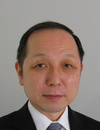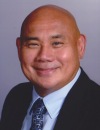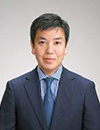Martyn BoutelleProfessor of Biomedical Sensors Engineering, Imperial College London Martyn Boutelle is Professor of Biomedical Sensors Engineering in the Department of Bioengineering, Imperial College London, and Associate Provost for Estates Planning for Imperial College. |
Dino Di CarloArmond and Elena Hairapetian Chair in Engineering and Medicine, Professor and Vice Chair of Bioengineering, University of California-Los Angeles Dino Di Carlo received his B.S. in Bioengineering from the University of California, Berkeley in 2002 and received a Ph.D. in Bioengineering from the University of California, Berkeley and San Francisco in 2006. From 2006-2008 he conducted postdoctoral studies in the Center for Engineering in Medicine at Harvard Medical School. He has been on the faculty in the Department of Bioengineering at UCLA since 2008 and now as Professor of Bioengineering and Mechanical Engineering serves as the Vice Chair of the Department and as the director of the Cancer Nanotechnology Program in the Jonsson Comprehensive Cancer Center. His research pioneered the use of inertial fluid dynamic effects for the control, separation, and analysis of cells in microfluidic devices. His recent work extends into numerous other fields of biomedicine and biotechnology including directed evolution, cell analysis for rapid diagnostics, new amplified molecular assays, next generation biomaterials, and phenotypic drug screening. He has also been a leader in technology entrepreneurship: He co-founded and currently serves on the board of directors of five companies that are commercializing UCLA intellectual property developed in his lab (CytoVale, Vortex Biosciences, Tempo Therapeutics, Forcyte Biotechnologies and Ferrologix). Among other honors he received the Presidential Early Career Award for Scientists and Engineers (PECASE) and was elected a Fellow of the American Institute for Medical and Biological Engineering in 2016, was elected a Fellow of the Royal Society of Chemistry (FRSC) in 2014, was awarded the National Science Foundation (NSF) Faculty Early Career Development award and the U.S. Office of Naval Research (ONR) Young Investigator Award, the Packard Fellowship and Defense Advanced Research Projects Agency (DARPA) Young Faculty Award, and received the National Institutes of Health (NIH) Director’s New Innovator Award and Coulter Translational Research Award. |
Stephen EvansProfessor, University of Leeds Graduated in Physics from Queen Mary College, University of London and obtained his Ph.D. on Langmuir Blodgett Superlattices of Porphyrins, at Lancaster University. He subsequently undertook postdoctoral research at Imperial College, London. and was a Visiting Scientist at Eastman Kodak, Rochester, NY USA. In 1991 he moved to the School of Physics and Astronomy, at the University of Leeds where became Professor of Molecular and Nanoscale Physics in 2002. Since 2000 he has held posts as Deputy Director of the multidisciplinary Centre for Self-Organising Molecular Systems (SOMS), the Nano Manufacturing Institute and has been the Chairman of the School of Physics & Astronomy. He currently heads the Molecular and Nanoscale Physics group and is the Scientific Research Director of the NIHR supported Centre for Surgical Technologies. His main research interests are in; i) the development of theranostic agents, ii) Model lipid membranes, iii) Approaches for single cell analysis. |
Takashi FunatsuProfessor, University of Tokyo Takashi Funatsu received his BS, MS and PhD degrees from Waseda University in 1982, 1984 and 1988, respectively. He was an associate professor at Waseda University in 1997. Since 2004, he has been a professor of Graduate School of Pharmaceutical Sciences, The University of Tokyo. His research interests are (1) Elucidating the molecular mechanism of bio-molecular machine, such as a molecular chaperonin, (2) Single molecule imaging of processing and transport of mRNA in a living cell, and (3) Development of micro/nano devices to analyze bio-molecular interactions. |
Danilo TagleDirector, Office of Special Initiatives, National Center for Advancing Translational Sciences at the NIH (NCATS) Dan Tagle is Director of the Office of Special Initiatives at NCATS where he many coordinates efforts towards development of disruptive technologies in translational research. He obtained his Ph.D. in Molecular Biology and Genetics from Wayne State University School of Medicine. He was an NIH National Research Service Award postdoctoral fellow in Human Genetics at the University of Michigan. He has served on numerous committees, advisory boards, and editorial boards. He has authored many scientific publications and has garnered numerous awards, including more recently the Roscoe O. Brady Award for Innovation and Accomplishment, and the Henry J. Heimlich Award for Innovative Medicine. |
Manabu TokeshiProfessor, Hokkaido University Manabu Tokeshi is a Professor at the Division of Applied Chemistry at Hokkaido University. He is also a Visiting Professor at Innovative Research Center for Preventive Medical Engineering and Institute of Innovation for Future Society at Nagoya University. He received his PhD degree from Kyushu University in 1997. After a research fellow of the Japan Society of Promotion of Science at The University of Tokyo, he worked at Kanagawa Academy of Science and Technology as a research staff (1998-1999), a group subleader (1999-2003), and a group leader (2003-2004). He also worked at the Institute of Microchemistry Technology Co. Ltd. as President (2004-2005) and at Nagoya University as an Associate Professor (2005-2011). In 2011, he visited Karolinska Institutet as a Visiting Researcher and he joined the Hokkaido University as a Professor. His honors include the Outstanding Researcher Award on Chemistry and Micro-Nano Systems from the Society for Chemistry and Micro-Nano Systems (2007), the Pioneers in Miniaturisation Prize from the Lab on a Chip (The Royal Society of Chemistry)/Corning Inc. (2007), the Masao Horiba Award from HORIBA, Ltd. (2011), The Japan Society for Analytical Chemistry Award (2018) and Fellow of Royal Society of Chemistry (FRSC) (2019). His research interests are in the development of micro- and nano-systems for chemical, pharmaceutical and clinical applications. |
An-Bang WangDistinguished Professor, Institute of Applied Mechanics, National Taiwan University He is honored as distinguished professor at National Taiwan University since 2020. He became a full professor of the Institute of Applied Mechanics, National Taiwan University in 2001. In the period from 2002 to 2004, he served as the director of Optomechatronics Education Resource center, Ministry of Education, Taiwan, ROC. From 2004 to 2008, he served as the chairman of the display technology Education Program and counselor of advisory office, Ministry of Education, Taiwan, ROC. He has been honored with the 2013 Distinguished Engineering Professor Award granted by Chinese Institute of Engineers (CIE), Taiwan, ROC. From 2014 to 2016, he was elected as vice president of International Society of Coating Science and Technology. His current research interests include advanced coating & 3D-printing technology, microfluidic platform for biomedical and industrial applications, display & optomechatronic systems, and biomimetics. |




